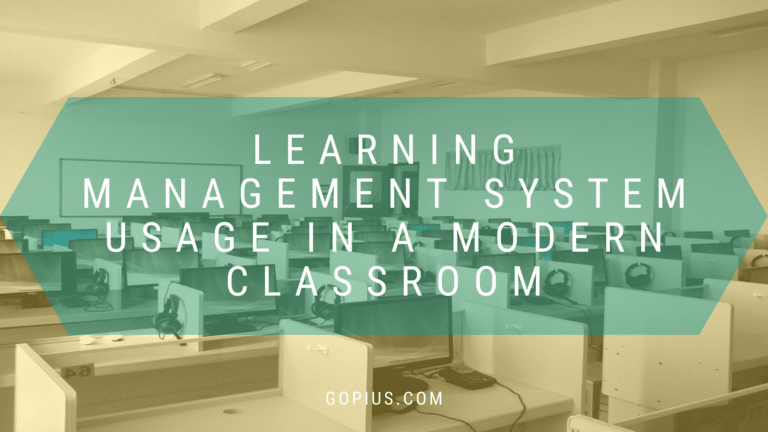Top 9 Tips on How to Start a Podcast in 2025

How to Start a Podcast in 2025 – Podcasting continues to grow as a popular medium for storytelling, education, and entertainment. In 2025, starting your own podcast can be an exciting venture, allowing you to share your voice and connect with a global audience. This guide will walk you through essential steps on how to start a podcast in 2025, ensuring you are well-prepared to launch your show successfully.
Read: An Introduction to Mobile Learning Platforms
Top 9 Tips on How to Start a Podcast in 2025
Identify Your Podcast Theme
The first step in how to start a podcast in 2025 is identifying a compelling theme. Choose a topic that you are passionate about and can discuss for numerous episodes. Consider potential episode ideas and ensure your theme has longevity and appeal to your target audience.
Decide on a Format
Next, determine the format of your podcast. Popular formats include interviews, scripted narratives, or educational discussions. Selecting the right format is crucial as it sets the tone for your content and engages listeners effectively.
Create Your Podcast Brand
Branding is vital when learning how to start a podcast in 2025. Develop a memorable name and logo that reflects your podcast’s theme and resonates with your audience. Consistent branding helps establish credibility and attracts listeners.
Choose Your Equipment
Investing in quality equipment is essential for producing high-quality audio. At minimum, you’ll need a good microphone, headphones, and recording software. Research options that fit your budget while ensuring clear sound quality.
Outline Your First Episode
Before recording, outline your first episode. This plan should include key points, potential guest interviews, and a clear structure. A well-organized episode helps maintain focus and keeps listeners engaged throughout.
Record Your Podcast
Once you have everything set up, it’s time to record! Find a quiet space and use your chosen software to capture your audio. Remember to speak clearly and maintain an engaging tone throughout the recording.
Edit Your Podcast
Editing is crucial in how to start a podcast in 2025. Use editing software to remove mistakes, add music or sound effects, and ensure smooth transitions. Quality editing enhances the listening experience and reflects professionalism.
Decide on Podcast Hosting
Choose a reliable podcast hosting platform to publish your episodes. This service will distribute your podcast across various directories like Apple Podcasts and Spotify, making it accessible to listeners worldwide.
Market Your Podcast
Finally, promote your podcast through social media, email newsletters, and collaborations with other podcasters. Engaging with your audience and utilizing various marketing strategies will help grow your listener base over time.
What are the Best Podcasting Equipment options for Beginners in 2025
For beginners looking to start podcasting in 2025, selecting the right equipment is crucial for achieving high-quality audio. Here are some of the best podcasting equipment options to consider:
Microphones
1. Audio-Technica ATR2100x: This versatile microphone offers both USB and XLR connections, making it perfect for beginners. It captures clear audio and is forgiving in less-than-ideal recording conditions.
2. Shure SM7B: A professional-grade dynamic microphone known for its rich sound quality and noise rejection. It’s ideal for podcasters who want to invest in high-quality audio.
3. MXL 990: A solid entry-level condenser microphone that comes with a shock mount and adapter, suitable for home studios.
Headphones
1. Audio-Technica ATH-M50x: Renowned for its exceptional sound clarity and durability, this model is a favorite among podcasters for monitoring audio during recording and editing.
2. Sony WH-1000XM5: These noise-canceling headphones provide excellent sound quality and comfort, making them suitable for recording in noisy environments.
3. Logitech G Pro X: Offers a good balance of performance and price, featuring a high-quality integrated microphone, making it versatile for various uses.
Audio Interfaces
1. Focusrite Scarlett 2i2: A popular USB audio interface that allows you to connect multiple microphones and provides high-quality audio processing.
2. RØDECaster Pro II: An all-in-one podcast studio that supports multiple inputs and includes features like sound effects and Bluetooth connectivity, ideal for podcasters who want an easy setup.
Accessories
1. Pop Filters: Essential for reducing plosive sounds during recording, ensuring cleaner audio quality.
2. Microphone Stands: Invest in a sturdy stand to keep your microphone stable during recording sessions.
3. Shock Mounts: These help isolate the microphone from vibrations and handling noise, further improving audio clarity.
How can I effectively Market my Podcast to attract Listeners
To effectively market your podcast and attract listeners, consider implementing the following strategies:
1. Define Your Audience: Create an audience persona to understand your target listener’s needs and preferences. This helps tailor your marketing efforts specifically to them.
2. Leverage Social Media: Utilize platforms like TikTok, Instagram, and Facebook to promote your podcast. Nearly half of podcast listeners discover new shows through social media.
3. Engage in Cross-Promotion: Partner with other podcasters who share a similar audience. This can introduce your podcast to new listeners without additional costs.
4. Optimize for SEO: Implement SEO best practices for your podcast and website. Use relevant keywords in episode titles and descriptions to improve visibility in search results.
5. Create a Podcast Website: Develop a dedicated website with show notes and a blog to enhance accessibility and provide valuable content that attracts new listeners.
6. Start a Newsletter: Regular newsletters can keep your audience engaged and informed about new episodes, fostering a sense of community around your podcast.
7. Encourage Reviews and Ratings: Ask listeners to leave reviews and ratings, as positive feedback can boost discoverability on platforms like Apple Podcasts.
8. Utilize Paid Advertising: If budget allows, consider targeted ads on social media or podcast apps to reach specific demographics likely to be interested in your content.
9. Track Your Analytics: Regularly assess your podcast’s performance through analytics to understand listener behavior and refine your marketing strategies accordingly.
10. Engage with Your Community: Foster listener loyalty by interacting with your audience through social media, responding to comments, and incorporating their feedback into future episodes.
What are some Common Mistakes to avoid when starting a Podcast
When starting a podcast, avoiding common mistakes can significantly enhance your chances of success. Here are some key pitfalls to watch out for:
1. Not Defining Your Audience: Failing to understand who your listeners are can lead to unfocused content that doesn’t resonate. Research your target audience to tailor your topics and style effectively.
2. Poor Audio Quality: Bad sound quality can quickly turn off listeners. Invest in a good microphone and ensure you record in a quiet environment to maintain audio clarity.
3. Inconsistent Publishing Schedule: Lack of consistency can frustrate your audience. Establish a realistic release schedule and stick to it, whether weekly or bi-weekly.
4. Neglecting Promotion: Many podcasters assume their content will attract listeners organically. Develop a marketing strategy that includes social media promotion and collaborations with other podcasters.
5. Overly Long Episodes: Lengthy or rambling episodes can lead to listener fatigue. Plan your episodes with clear outlines to keep them engaging and concise.
6. Skipping the Editing Process: Releasing unedited episodes with awkward pauses or mistakes can diminish professionalism. Dedicate time to edit for a smoother listening experience.
7. Ignoring Audience Engagement: Not interacting with your audience can lead to disengagement. Encourage feedback and create segments that involve listener questions or stories.
8. Lack of Unique Selling Proposition (USP): Without a distinct angle, your podcast may blend in with others. Identify what makes your content unique and communicate that clearly.
9. Underestimating the Effort Required: Podcasting demands significant time and energy for planning, recording, and editing. Be prepared for the commitment involved in producing quality content.
10. Not Tracking Performance: Failing to analyze listener data can hinder growth. Use analytics to understand what works and adapt your strategy accordingly.






